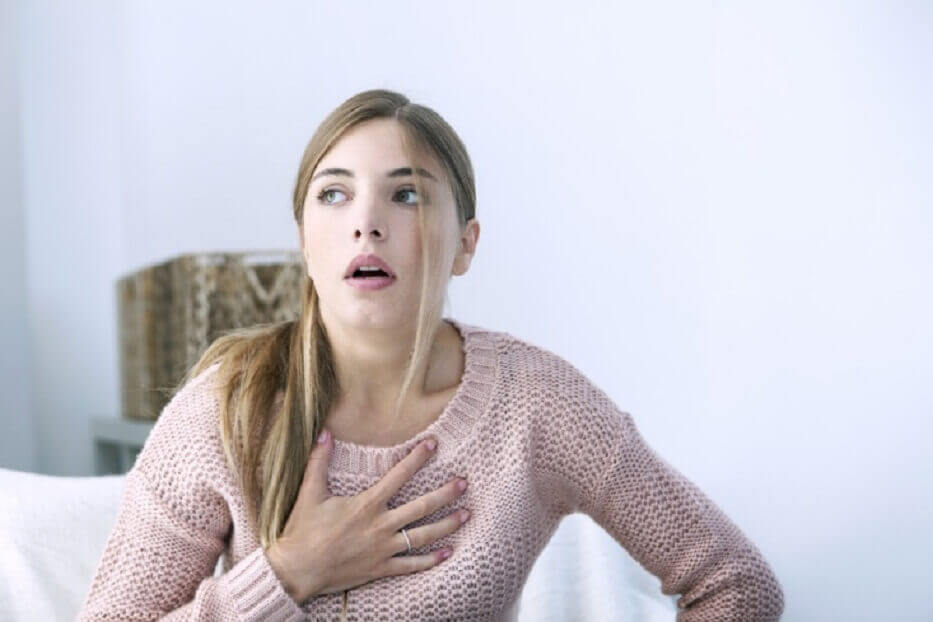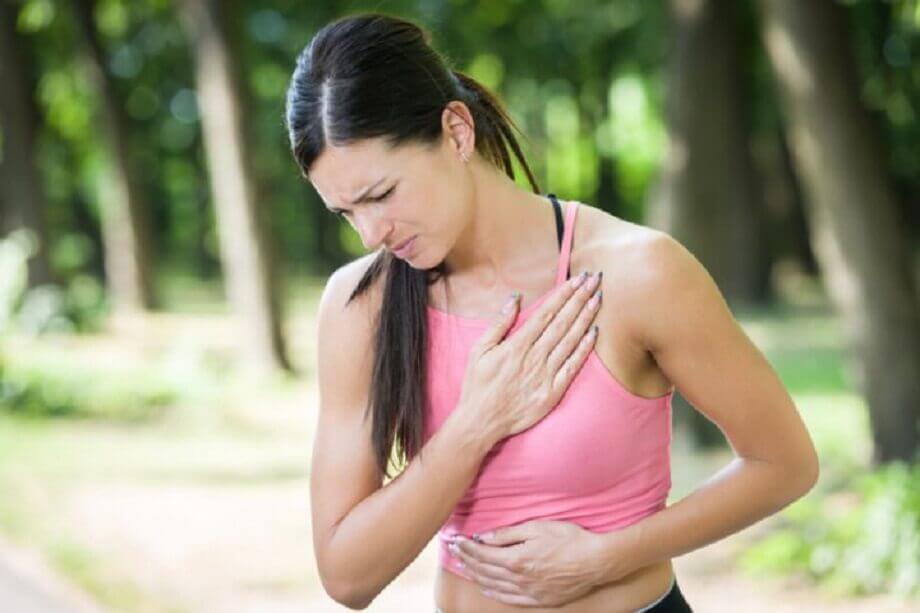7 Heart Attack Symptoms Women Often Ignore


Reviewed and approved by the doctor Maricela Jiménez López
The number of women suffering heart attacks has increased in recent years. However, there are still many problems with forming a diagnosis before heart attack symptoms build up. This is not only because heart attacks are more difficult to detect in women. Actually, women are often slower to seek out medical help when they feel the discomfort that can be associated with a heart attack.
Also, many of the early symptoms of a heart attack are easily confused with those of much milder conditions. And, these conditions very rarely require a trip to the emergency room.
Some of the symptoms appear over the course of some time. However, they don’t automatically equal a heart attack. But, it’s useful to stay alert to the possibility.
That’s why we want to go into detail about the 7 main heart attack symptoms. So, you won’t let them go unnoticed.
1. Choking Sensation

The sensation of suffocation or choking is a symptom that usually comes hand in hand with respiratory conditions. However, if you’re not currently experiencing respiratory problems, the sensation is probably related to heart troubles.
- If you’re experiencing this discomfort, be aware that it could be one of the early heart attack symptoms. This is especially true if you’re only performing regular daily tasks.
- Also, this choking sensation often accompanies a sensation of pressure in the chest and a recurrent cough.
2. Tiredness
Of course, tiredness could be the result of any number of factors. For example, it could be due to a sleep disorder, a poor diet, or an excess of physical activity.
However, if it begins to manifest recurrently and for no apparent reason, it could be an indication of problems with the heart and the circulation system.
- The build-up of cholesterol in the arteries interferes with blood flow and, by overloading the heart, increases the pressure and leads to higher risk of heart attack.
- And since the amount of oxygen reaching the cells reduces, muscles functions and cognition receive negative effects.
3. Insomnia

However, in the case of women, it can also occur when there are significant hormonal changes, or when the functioning of the heart is compromised.
- Often, those who are at risk of hypertension and heart attacks will have problems sleeping well. This is especially true in the days just before suffering an attack. So, be cautious of this along with other heart attack symptoms.
4. Cold Sweats
The sudden onset of cold sweating can be a one of several heart attack symptoms. Or, it could be related to a number of other chronic cardiovascular disorders.
Like the other heart attack symptoms, this one can be the result of a large number of conditions. But, it’s well worth looking into the origin of this symptom.
- In this case, it occurs because the body is multiplying its efforts to regulate its temperature, since the overexertion of the heart is causing sudden changes in temperature.
- It may also be accompanied by feelings of dizziness and general malaise caused by interferences in the normal flow of blood around the body.
5. Pain in the Left Side

The appearance of unusual pain on the left side of the body is perhaps one of the clearest and best-known signs of possible heart attacks in women.
- Those who experience this symptom may feel pain in the arm, the back and the jaw on the left side of their bodies, even beginning a few days before the heart attack actually hits.
- The pain can also manifest gradually, going from mild to chronic over the course of a few hours.
6. Feelings of Anxiety
As we all know, there are many situations that can cause an episode of sudden anxiety. However, it’s important to pay attention to how anxiety manifests itself. In fact, it can affect our heart rate and, over time, increase the risk of heart attacks.
- If feelings of anxiety are accompanied by stabbing chest pains or vertigo, it’s best to go to the doctor right away.
- And even when an attack does not occur, it is important to seek treatment for such feelings of anxiety, since their recurrence can increase the pressure on our hearts.
7. Acid Reflux

Excessive production of acidic juices in the stomach causes what we know as reflux.
This symptom manifests itself with a burning sensation in the abdomen and chest that can often be confused with the pain that occurs during a heart attack.
- Although few cases are actually because of a heart attack, it’s important not to rule it out as a possibility, especially if the pain is severe and recurs frequently.
Ask yourself the following questions: Do you have a family history of heart attack? Do you suffer from obesity, or have a sedentary lifestyle? If these risk factors apply to you and you experience the above symptoms, you should go to the doctor as soon as possible.
In general, even if you feel that you’re not at risk, try to get medical checkups and blood tests to check the state of your cardiovascular health.
All cited sources were thoroughly reviewed by our team to ensure their quality, reliability, currency, and validity. The bibliography of this article was considered reliable and of academic or scientific accuracy.
- Marrugat J., Sala J., Aboal J. Revista Española de Cardiología. Epidemiología de las enfermedades cardiovasculares en la mujer. (2016).
- NHS. El infarto de miocardio.
https://www.nhs.uk/translationspanish/Documents/Heart_attack_Spanish_FINAL.pdf
- Fundación Española del Corazón. El infarto femenino, ¿cómo avisa? (2018).
https://fundaciondelcorazon.com/blog-impulso-vital/3245-el-infarto-femenino-icomo-avisa.html
This text is provided for informational purposes only and does not replace consultation with a professional. If in doubt, consult your specialist.








